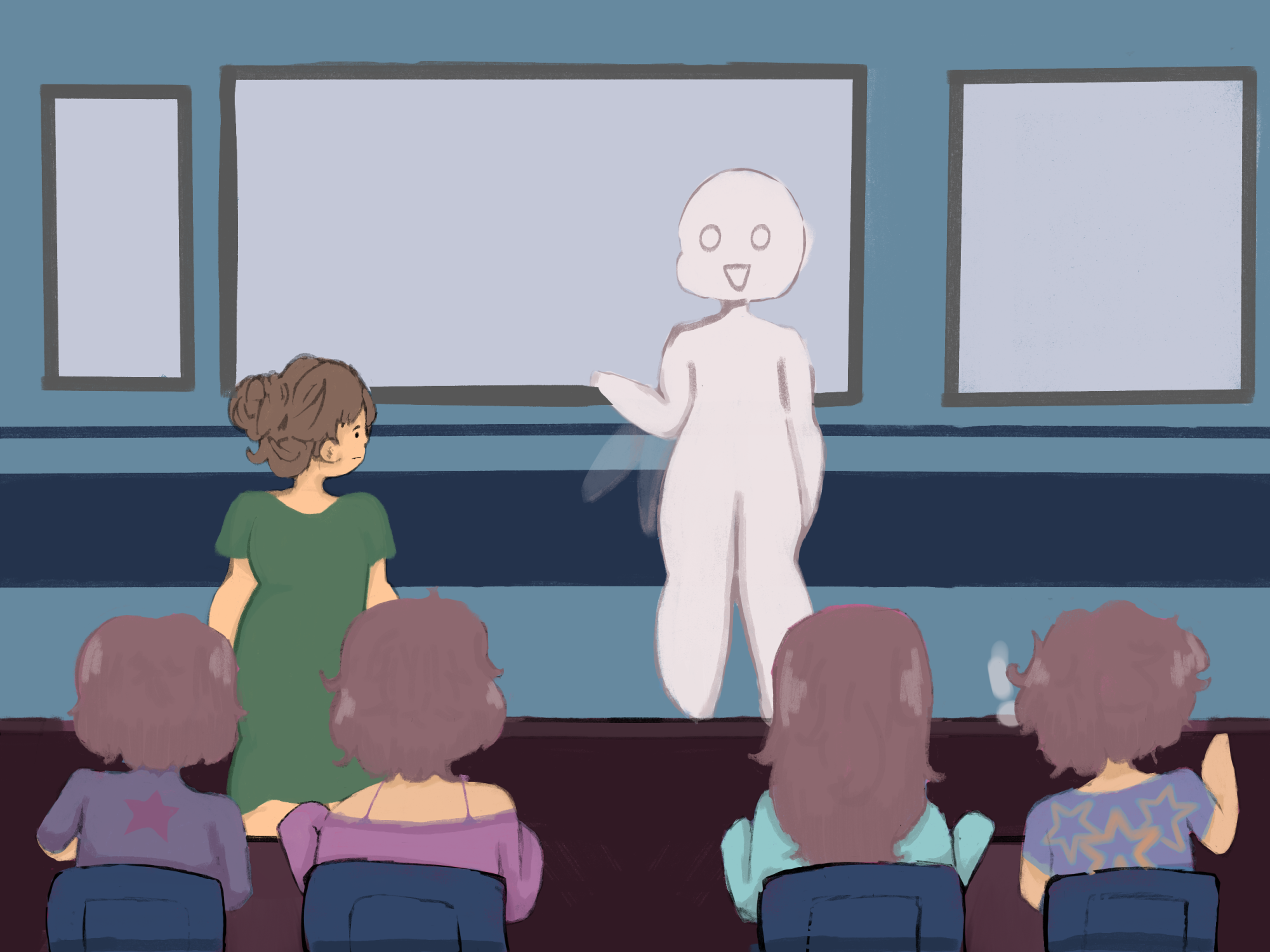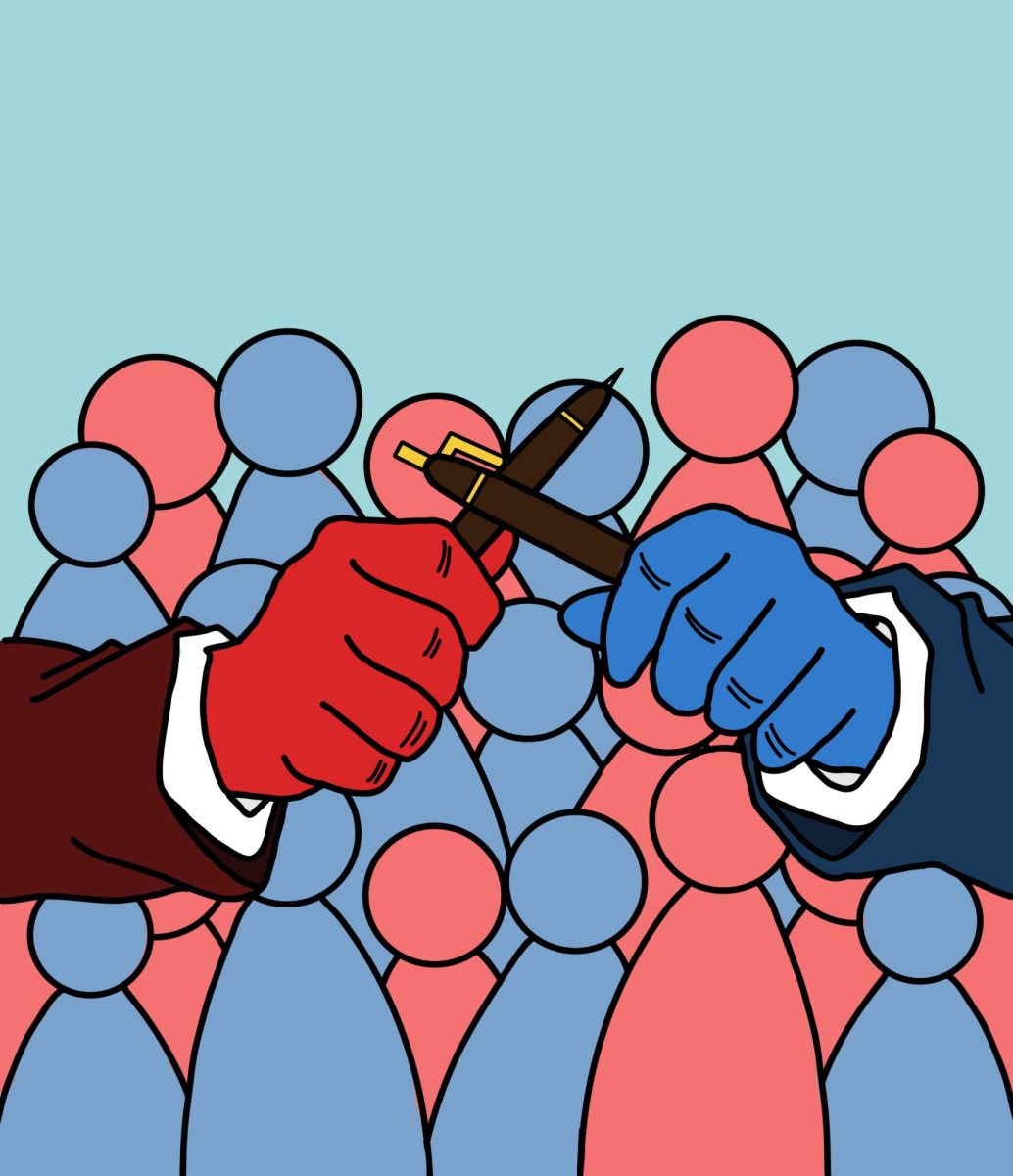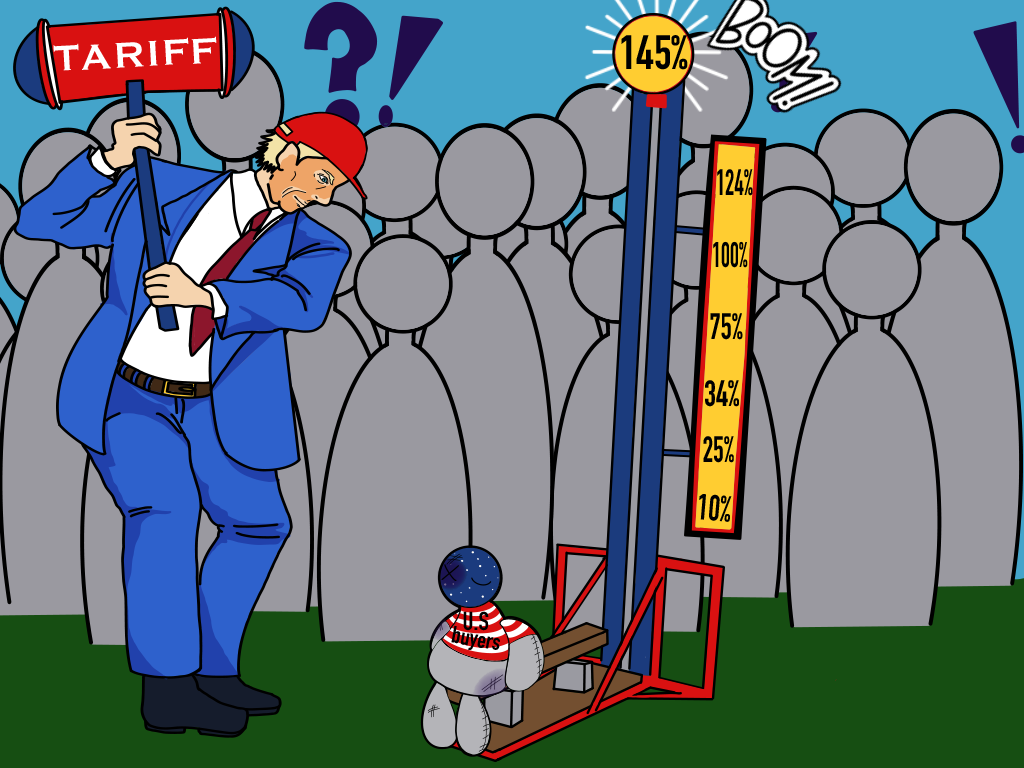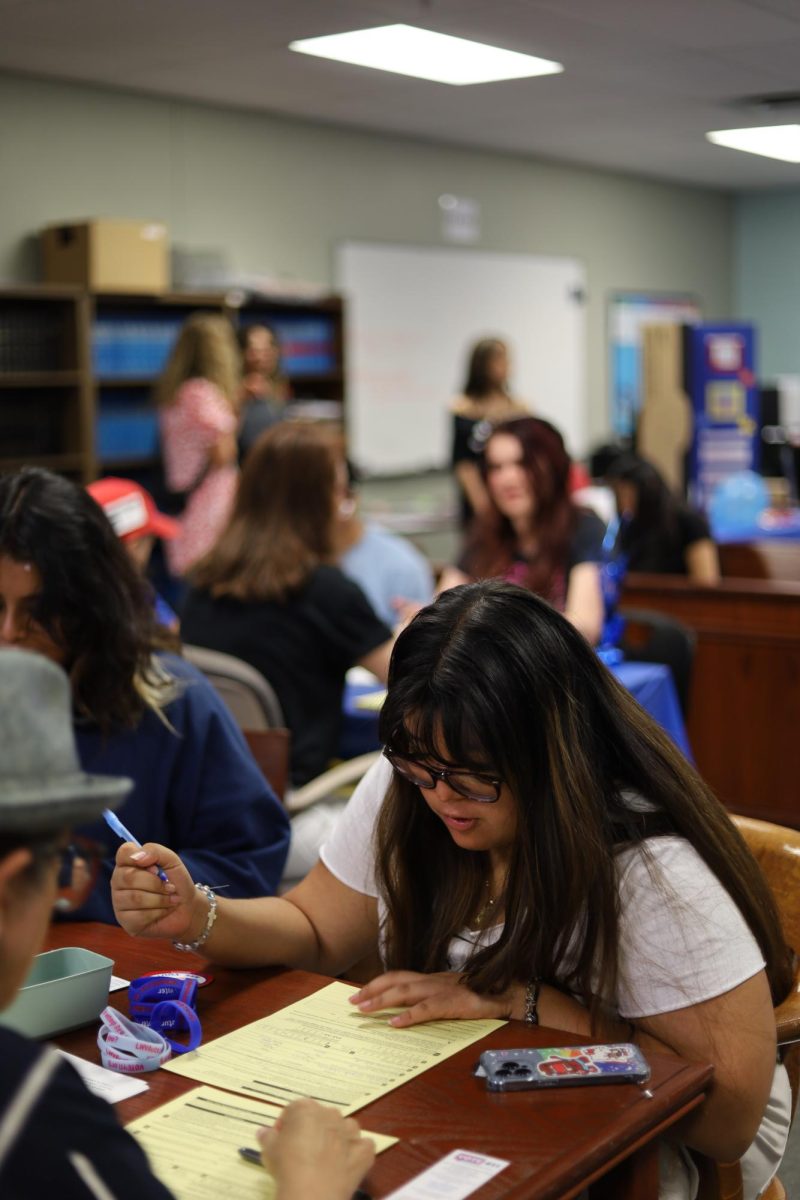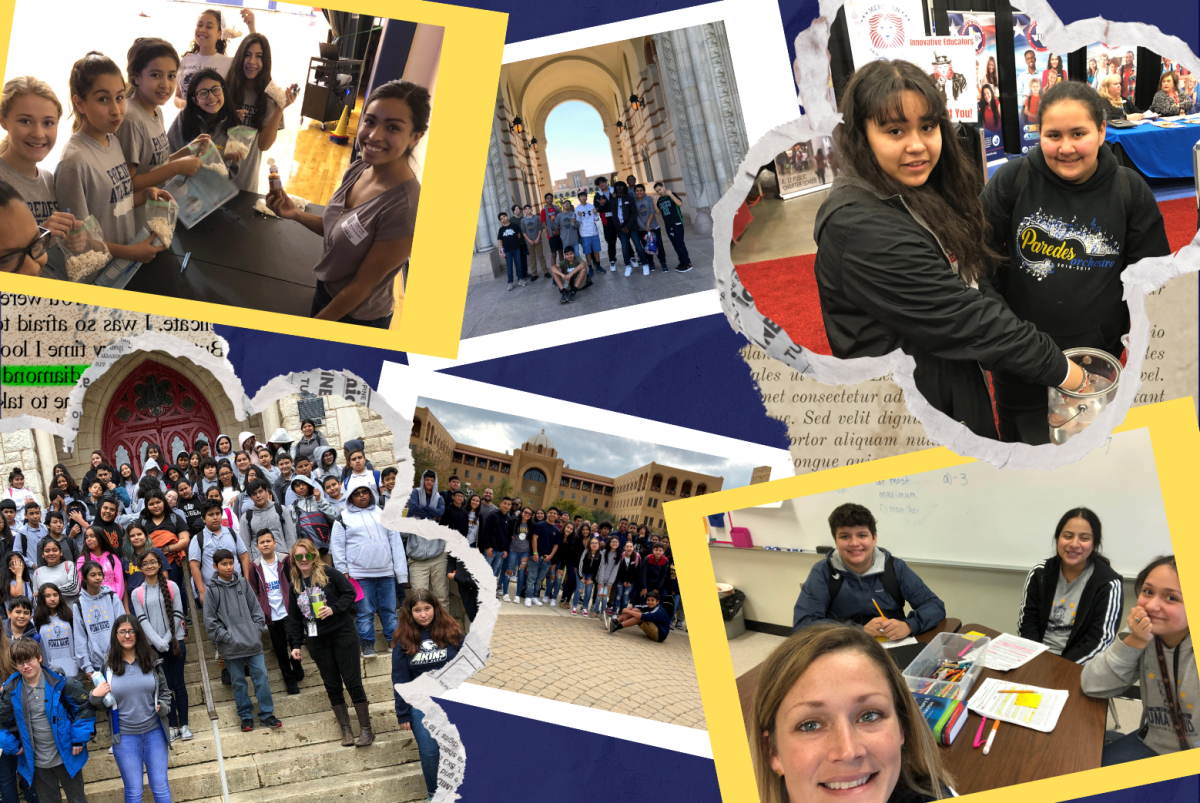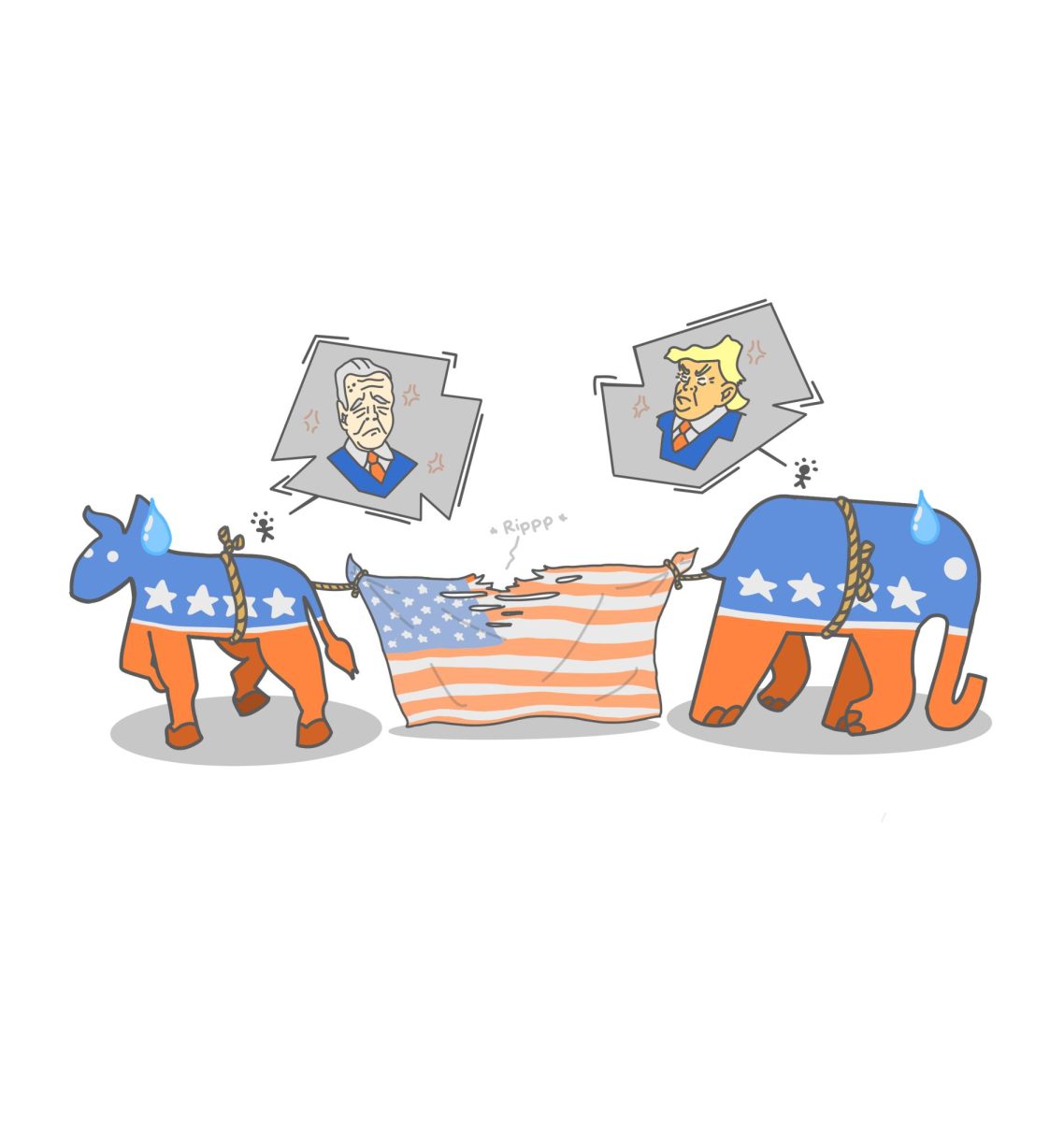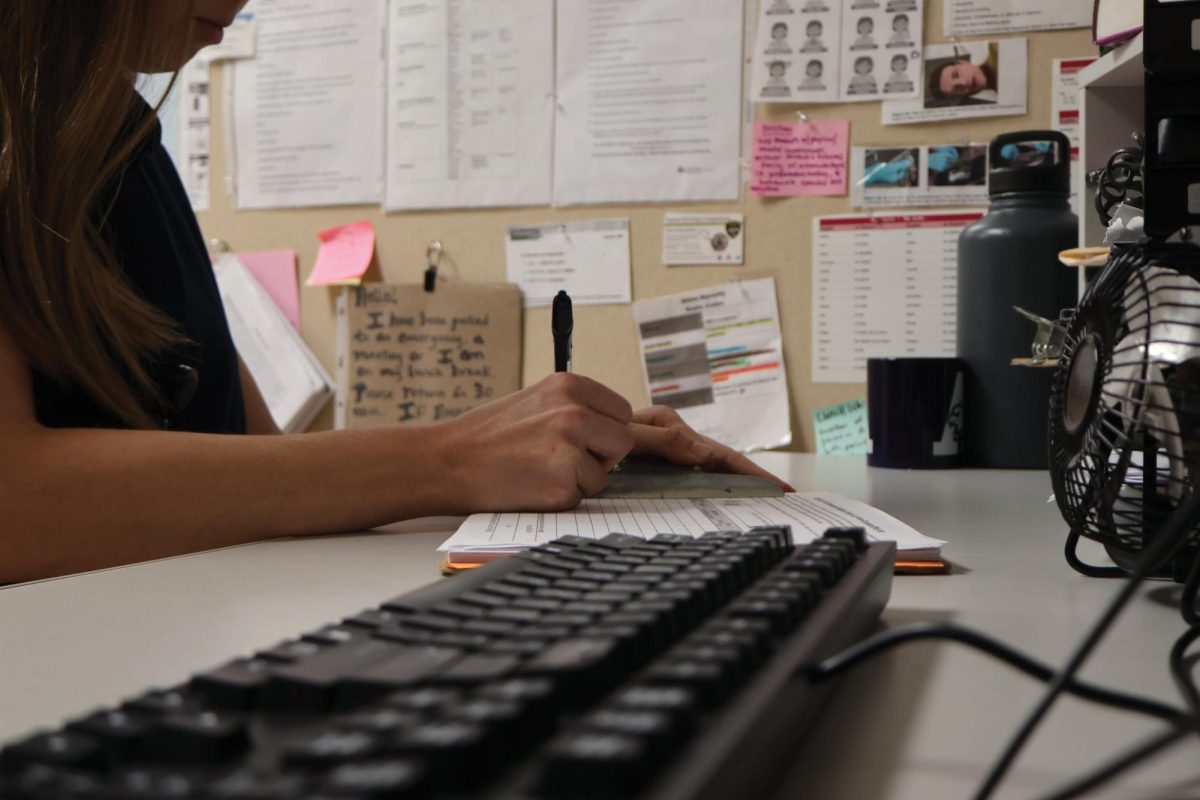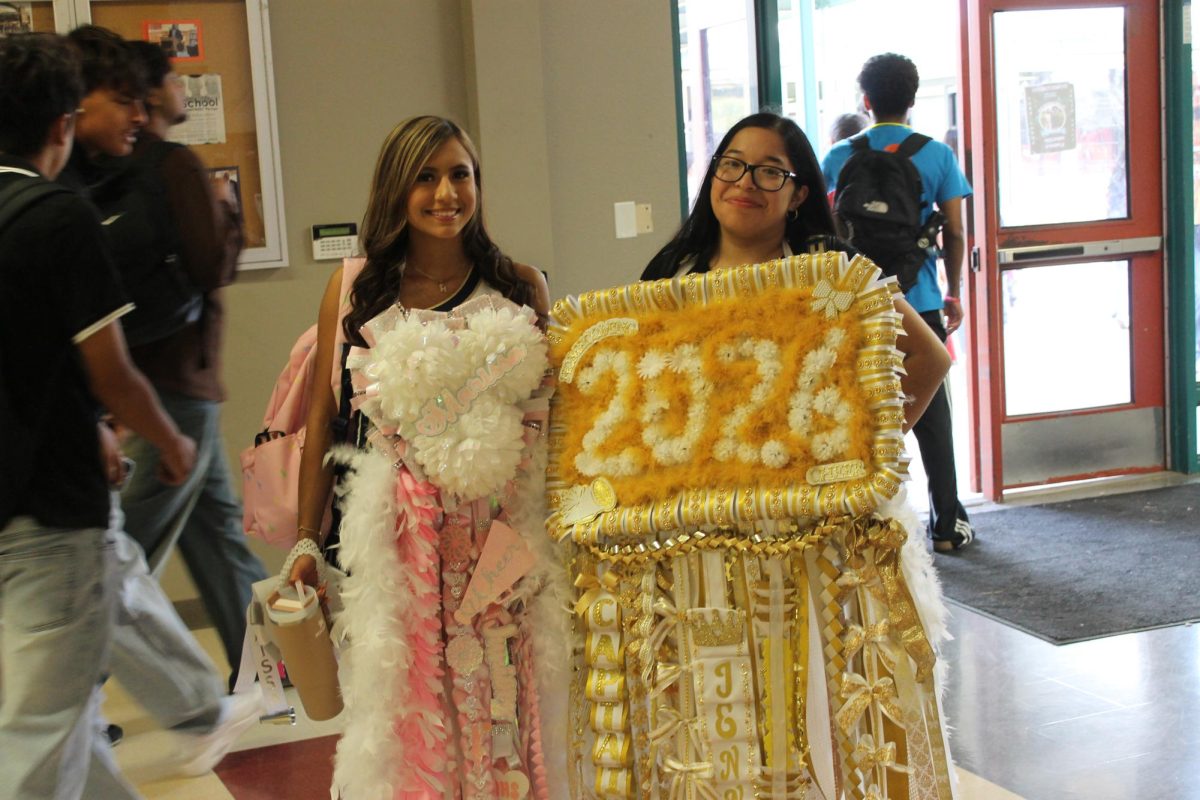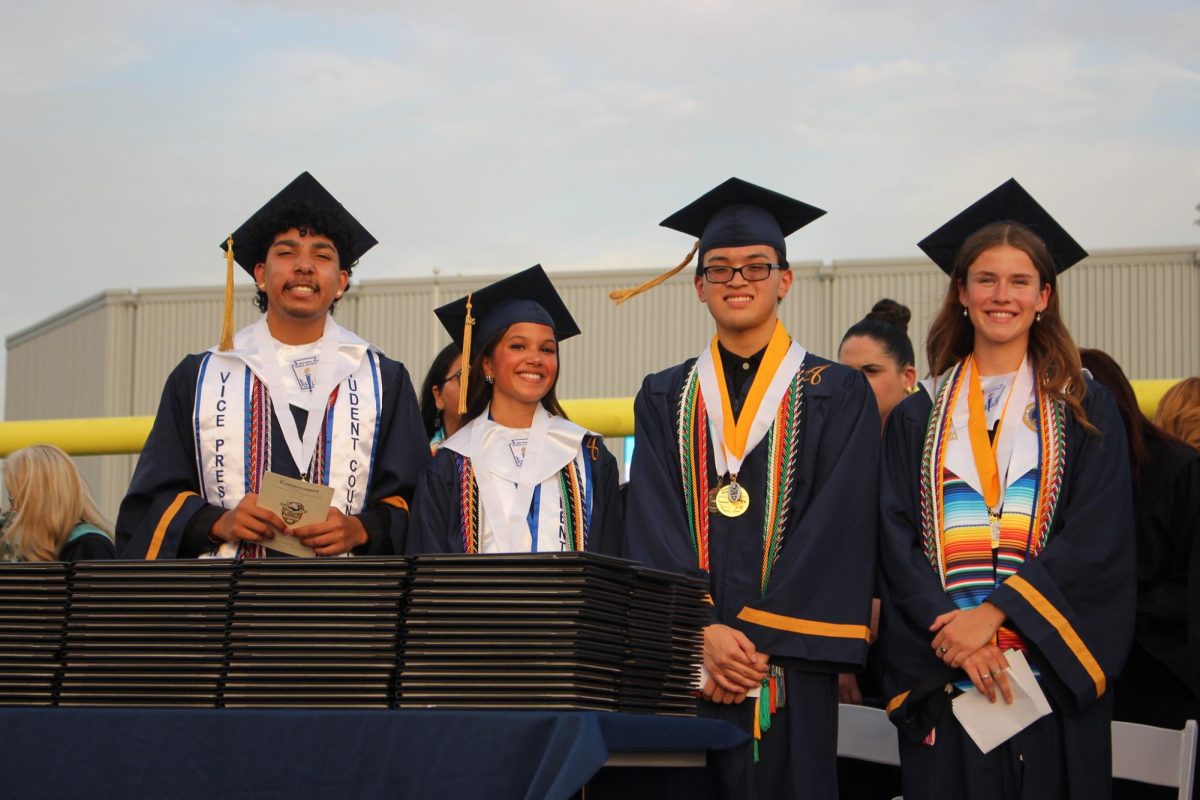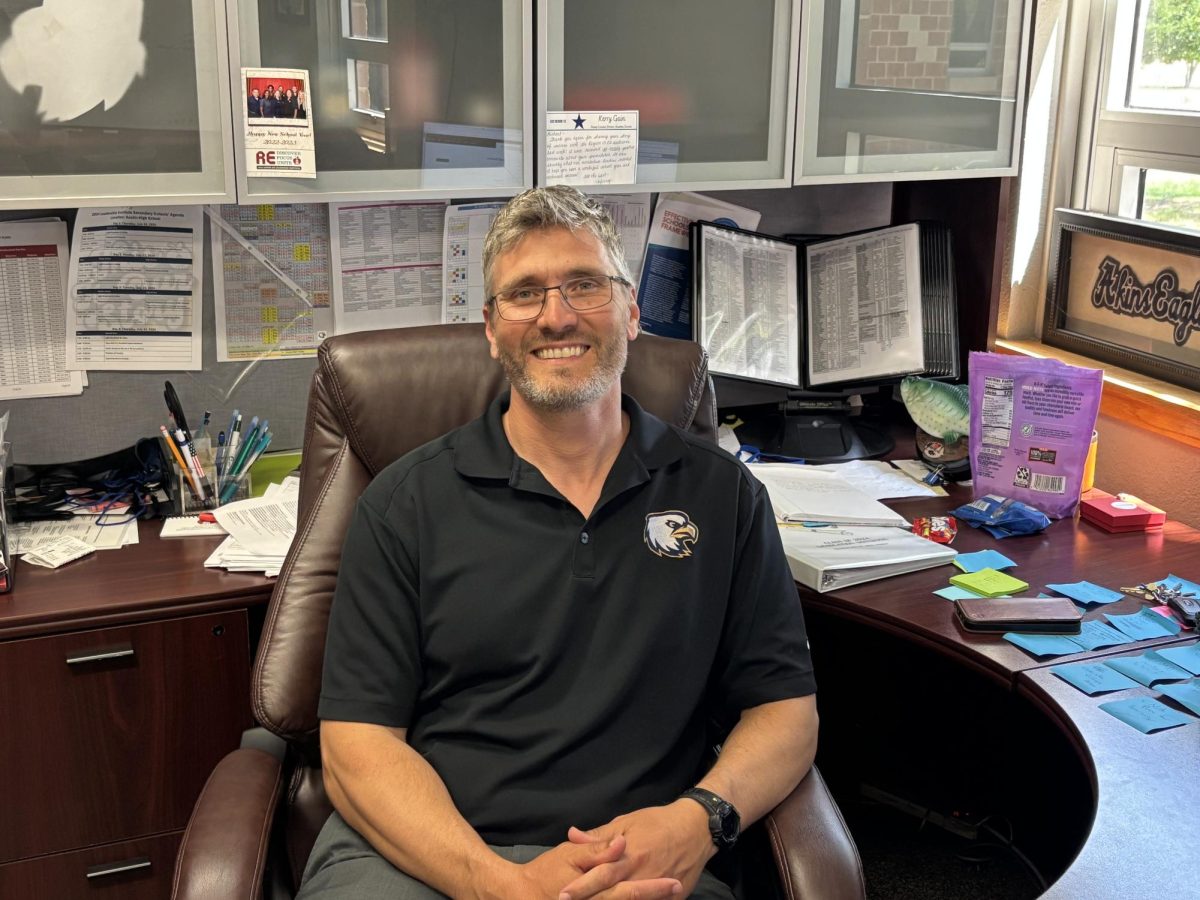Whether you like it or not, you are already likely using artificial intelligence technology on a daily basis.
Email spam filters, video playlist recommendations, fitness trackers, product recommendations, chatbots, and even smart home security cameras are all examples of how AI tech is becoming incorporated into our daily lives.
Not everyone is happy about AI use becoming widespread. One Akins student expressed frustration about what AI is doing to students in a comment submitted to a survey by The Eagle’s Eye.
“AI is turning human creativity into recycled slop,” they wrote.
Today, many online services that were once powered by traditional computer algorithms written by humans are starting to become replaced by ones written by computers that utilize machine learning, which is what enables modern artificial intelligence tools.
The changes can be subtle and unnoticeable to the average user. For example, when you log into a streaming service like Netflix to find a movie or TV show to watch, there is a good chance that it is now using artificial intelligence. It’s that technology that allows the service to build personalized lists of shows for you to watch based on your past viewing habits and other information that the service knows about you.
One way AI is becoming more noticeable comes in the form of AI-powered answers to web search questions. These appear at the top of web pages as Google search engine results. These answers are powered by Google’s proprietary AI system known as Gemini, which is gradually being added to more of Google’s other services, including Google Docs.
Americans’ ability to recognize AI
The Pew Research Center recently released a study that found most Americans’ ability to identify specific uses of the technology is still developing. Only 30% of U.S. adults could correctly recognize all six examples of AI in everyday life that Pew asked about in a December 2022 survey.
While most people don’t even realize that artificial intelligence is powering these services, these features are quickly spreading into more products people use regularly, including Google Docs, spell checkers, and photo editing software. The proliferation of AI-generated images and videos that spread virally on social media has also raised awareness about the influence this technology is having on our culture, society, and politics.
For some, the proliferation of AI results in a dystopian reality. Ever since the rise of AI, there has been increasing concern about its ethical use, especially when it comes to students using it for school work.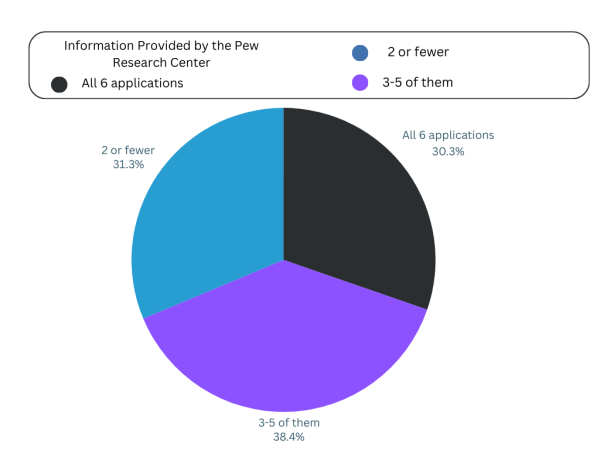
AI use at Akins
The Eagle’s Eye distributed an online survey, asking students to share their experiences using AI tools to perform school work and their opinions about the ethics of its use.
A senior who responded to the survey wrote that using AI is “almost no different than having a personal tutor.”
“My productivity increases a lot with the help of AI, and not because it is doing work for me, but because I am receiving live feedback on my work. It’s just a faster process overall,” wrote the senior.
Some respondents to the Akins survey said they use AI when they are struggling in their classes. They said it makes “life easier” and “helps solve problems,” such as school assignments and homework, that might be difficult when they lack an understanding of a specific subject or topic.
Other students said they use AI tools to check their work, increase productivity, and brainstorm ideas. There are AI tools available that explain all the steps of complicated subjects, helping them better understand the topic.
While some said they use AI to break down ideas when they are unable to get the additional support needed from their teachers, others acknowledged that they are overusing it to the point where they believe they are not learning at all.
The survey results showed that about 94% of Akins students said they believe there should be some restrictions on the use of AI tools on school work. However, not everyone agrees on what those restrictions should be.
An Akins senior wrote in the survey responses that the rules on AI use depend on how students are using it.
“If it allows students to just straight up cheat then no. But if it’s just to let students use AI tools then, yes,” they wrote. “AI could help them out as long as they aren’t relying on it for every little thing.”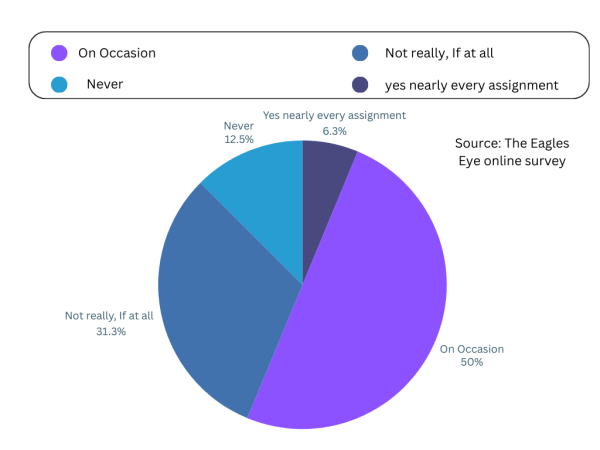
Teachers on AI in the classroom
English teacher Rebecca Redland recently had classroom discussions with her AP English students about when AI use crosses an ethical line and becomes plagiarism.
“I think the problem arises at school when students use AI, and it’s not in the spirit of learning, ” Redland said. “And so if a student is trying to use AI just to complete a task, then that’s really defeating the purpose of learning.”
Redland acknowledged that AI tools can help process large amounts of data quickly to assist researchers and write computer code, but she cautioned students from using it to perform creative endeavors.
“I think it’s being used for tasks that take humans a long time to figure out, in those situations AI has been fruitful,” she said. “I know that, like, if you’re taking a coding class and you want to use it to help you to write code, you can. At the same time, you have to be careful because there could be errors, and you’d have to double-check. Just like, if you use AI to help you write a paper, I mean, there’s going to be errors.”
Redland said there might be some appropriate uses for AI tools for school work and that teachers need to discuss with their students when and for what those opportunities are. She said that it might be acceptable for a student to search for topics, translate languages or change the reading-level of a text; however, students should check with their teacher first before using an AI tool.
“The teacher needs to set clear limits, but also give enough time for assignments so that students don’t feel like they have to (use AI),” Redland said. “Now, that may not be the only reason why students use AI. Sometimes it just may be pure laziness.”
Redland acknowledged that Austin ISD’s official policy on the use of AI tools is vague and mostly focused on plagiarism, but she said she believes that could allow campuses to tailor their own policies to fit the needs of their school. However, she said so far the Akins campus leadership team has yet to define those policies.
“We’ve talked about just academic dishonesty and plagiarism, and it’s been in the handbook, but it hasn’t been modernized to address AI so it’s probably time to do that,” she said.
English teacher Alan Brooks said he has been wanting the school to update its plagiarism policy for years. In 2018, he proposed several changes to the student handbook that defined various forms of cheating and detailed uniform consequences for repeated incidents of academic dishonesty.
Brooks said he solicited feedback from the English department to update the plagiarism policy, and received approval from a previous campus principal. However, those proposed changes to the campus handbook were never made, resulting in teachers and administrators handling plagiarism incidents differently.
If the updates to the student handbook’s academic dishonesty policies are ever made, Brooks said they would need to address AI use by students. Brooks said he would like to be involved in leading professional training meetings for teachers to help them better understand the appropriate and inappropriate use of AI in school work.
Meanwhile, students are left grappling with how to use AI tools in a world in which companies are rapidly pushing out the technology in ways that are normalizing its use and blurring the ethical lines.
An Akins junior wrote in a survey response that they expect AI tools to become just another tool that we all use on an everyday basis.
“Technology advances further each day and AI will be one of those advances,” they wrote. “And even today it has been an advance in technology. Now whether you think it was good or bad, that answer is yours to choose.”


